9 big ways Elden Ring is different from Dark Souls
Elden Ring is like a Dark Souls sequel from another universe
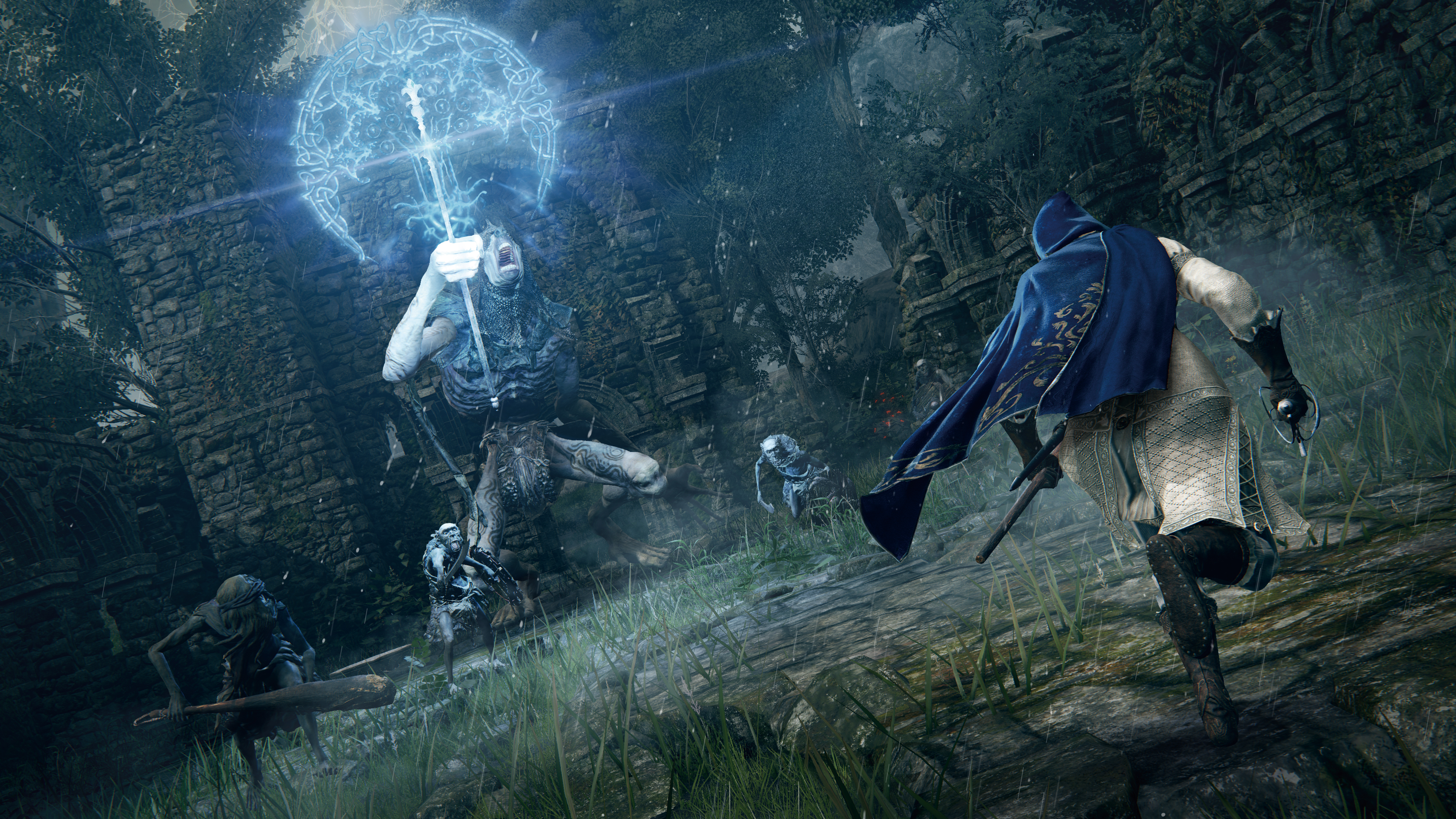
As we said in our Elden Ring hands-on preview, FromSoftware's next action-RPG is essentially an unofficial Dark Souls 4. It builds on and revives a lot of the mechanics that the mainline Dark Souls series established, and it gives off a similar vibe overall, from its weighty combat to its character mechanics. That said, Elden Ring has made some major changes and additions to FromSoftware's understood rules and ideas – many of them much more dramatic than any of the three Dark Souls games, each of which put their own spin on a few specific things.
Elden Ring will feel familiar to fans of the Dark Souls series, as well as those who got on the FromSoftware train with the PS5 remake of Demon's Souls, but a number of differences (which weren't really shown in the game's trailers) jumped out at us while playing an admittedly small portion of the game. Note that the test build we played is subject to change, meaning some of the following details may be adjusted too.
Here are some of the biggest ways that Elden Ring differs from Dark Souls – so far.
Everything has been renamed, and a lot's been rebalanced
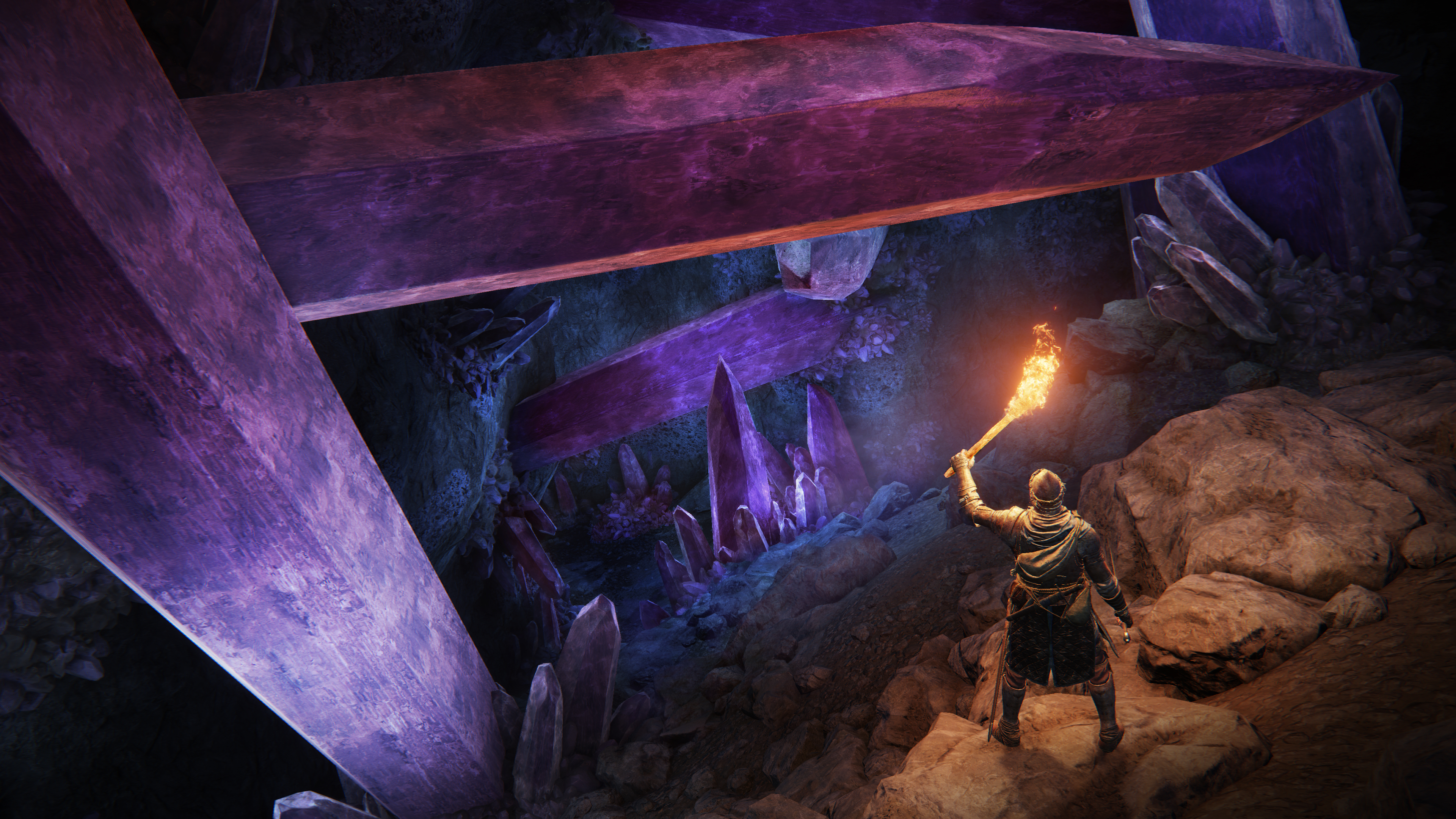
FromSoftware may as well release an official glossary at this point. Dark Souls established that bonfires are checkpoints, Estus Flasks are healing vials that reset at bonfires, Souls are your XP and money - to the point where every game since has run these things through the find and replace function on a text document. Elden Ring has its own set of new but familiar terms, and we thought it'd be useful to review them first.
Site of Grace: these are the bonfires of Elden Ring. Resting at one will refill your flasks and reset the enemies around you.
Guidance of Grace: some Sites of Grace will give off beams of light which highlight points of interest, which will help you progress in the game. You're free to follow or ignore them.
Flask of Crimson Tears: this flask recovers some health when you drink it.
Sign up to the GamesRadar+ Newsletter
Weekly digests, tales from the communities you love, and more
Flask of Cerulean Tears: this flask recovers some of your mana, or your FP, when you drink it. You can only carry a set amount of flasks (starting with four) and you can divide those between crimson and cerulean flasks as you see fit. You'll strengthen your flasks and add additional flask uses as you explore.
Runes: these are the Souls of Elden Ring, and they serve the same purpose. They double as both XP to spend on levels and money to spend on upgrades. If you die, you'll lose all the Runes you're carrying, but you can recover them if you make it back to your makeshift gravestone without dying again.
Summoning: you can now summon NPC phantoms solo as well as other players in multiplayer.
Fingers: a set of grisly items used to access and manipulate multiplayer. Here's how they work:
- The Furlcalling Finger Remedy: displays nearby summon signs
- The Tarnished's Furled Finger: places a gold summon sign which encourages other players to accept your help
- The Duelist's Furled Finger: places a red summon sign inviting other players to accept your challenge
- The Finger Severer: ends your current multiplayer session
- Bloody Finger: used to forcibly invade another player's world
- Taunter's Tongue: used to invite invaders to your world
- White Cipher Ring: used to request rescue from friendly players when invaded
- Blue Cipher Ring: answers SOS calls from the White Cipher Ring
- Passwords: not technically an item, but if you and a friend set the same password, you can guarantee that you, and only you, will see each other's summon signs. Group passwords act like soft guild systems, making messages from other players with the same group password more visible
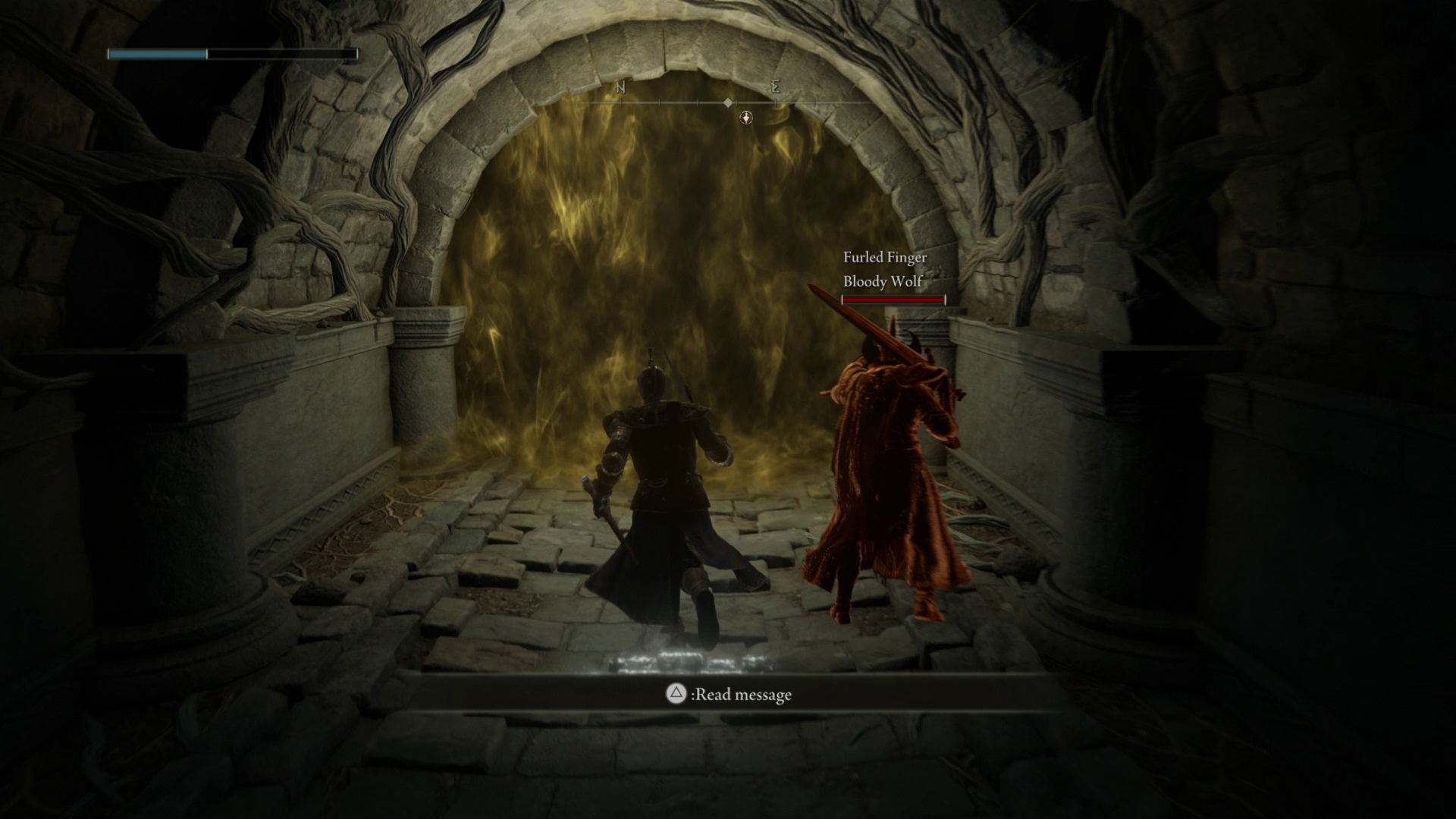
Stats: your character's stats are split into Vigor, Mind, Endurance, Strength, Dexterity, Intelligence, Faith, and Arcane. Leveling any of them will increase your resistances slightly, but they all have specific benefits. Here's a quick-and-dirty version:
- Vigor: increases your max health, fire resistance, and poison immunity
- Mind: increases your max FP (mana) and Focus-related resistances
- Endurance: increases your max stamina and robustness (which is the new poise)
- Strength: increases your max equipment load, lets you wield heavy weapons, and improves attack power of Strength-scaling weapons
- Dexterity: lets you wield more precise weapons and improves attack power of Dexterity-scaling weapons. Also reduces cast time, softens fall damage, and makes it harder to knock you off your spectral steed
- Intelligence: lets you use sorceries and improves Intelligence-scaling spell damage. Also improves magic resistance
- Faith: lets you use incantations and improves the damage of Faith-scaling spells
- Arcane: improves discovery, death resistance, and resistances against certain sorceries and incantations (this seems to be a new version of the Luck stat)
Pyromancies: these fire spells are now treated as incantations along with traditional miracles, but while all the pyromancies we've found scale with Faith, it's possible there are Intelligence-scaling pyromancies out there too.
Sites of Grace aren't the only checkpoints
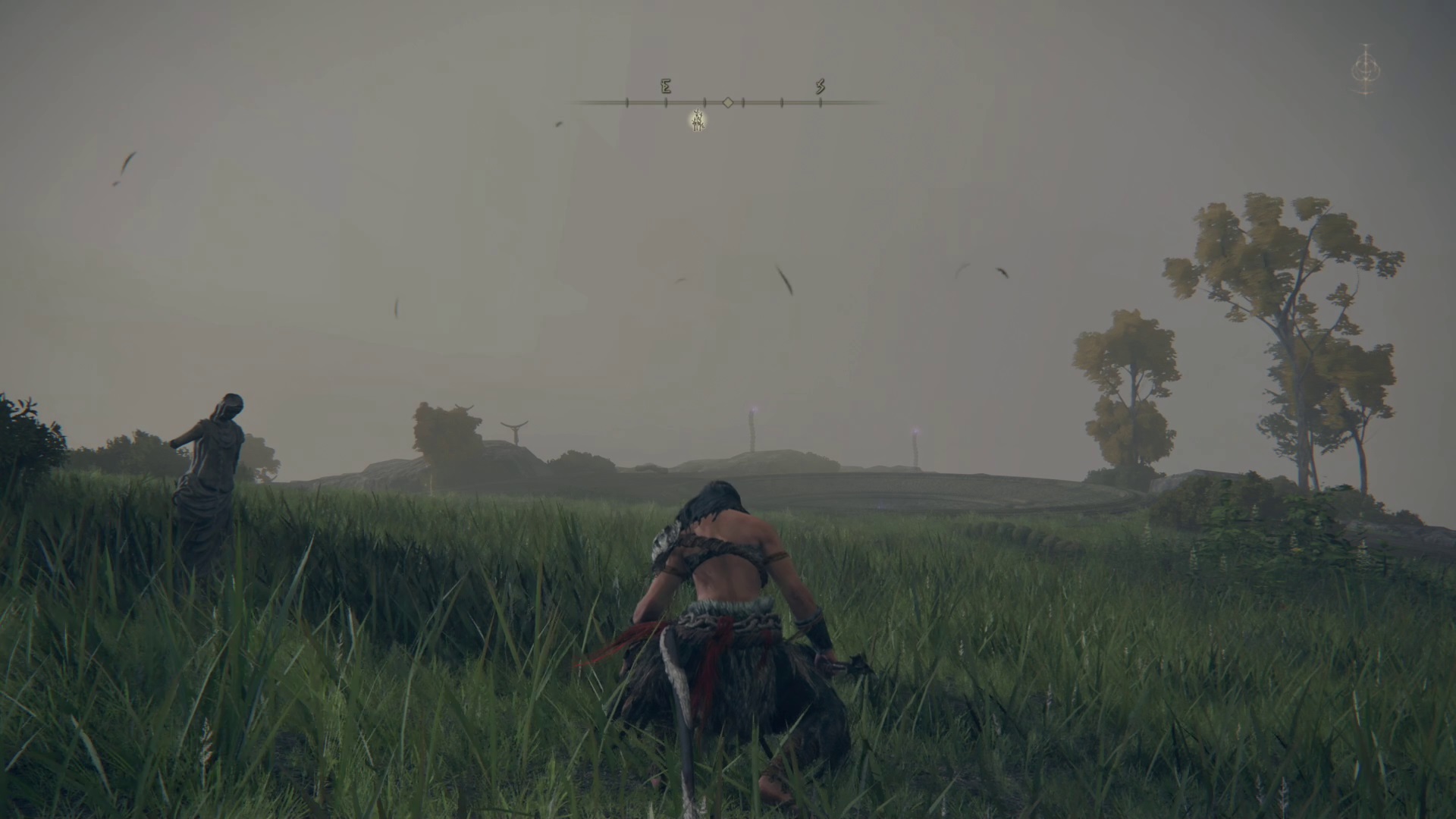
Between Sites of Grace, you may come across Stakes of Marika. These sub-checkpoints activate automatically when you get close, and if you die after passing one, you'll get to choose between respawning at the nearest Stake or your last Site. The kicker is that you can't actually rest at a Stake of Marika, so they're only useful if you die. That said, these things can save you a lot of running around when you're fighting a tough boss over and over, so they're always nice to see.
You have an extra flask that you can customize
Without spoiling too much, a boss in the early part of the game will drop a new consumable called the Flask of Wondrous Physick. Like your crimson and cerulean flasks, this flask is replenished when you rest at Sites of Grace, but it can be customized in different ways. You can socket two teardrop gems into it to change its effects. We've seen it recover half our maximum health and some of our FP in one chug, but you can also tweak it to recover stamina or, for some reason, explode. Seriously, it explodes in your mouth when you drink it, dealing damage to you and everything around you. It's weird.
Weapon skills and attributes can be swapped using Ashes of War
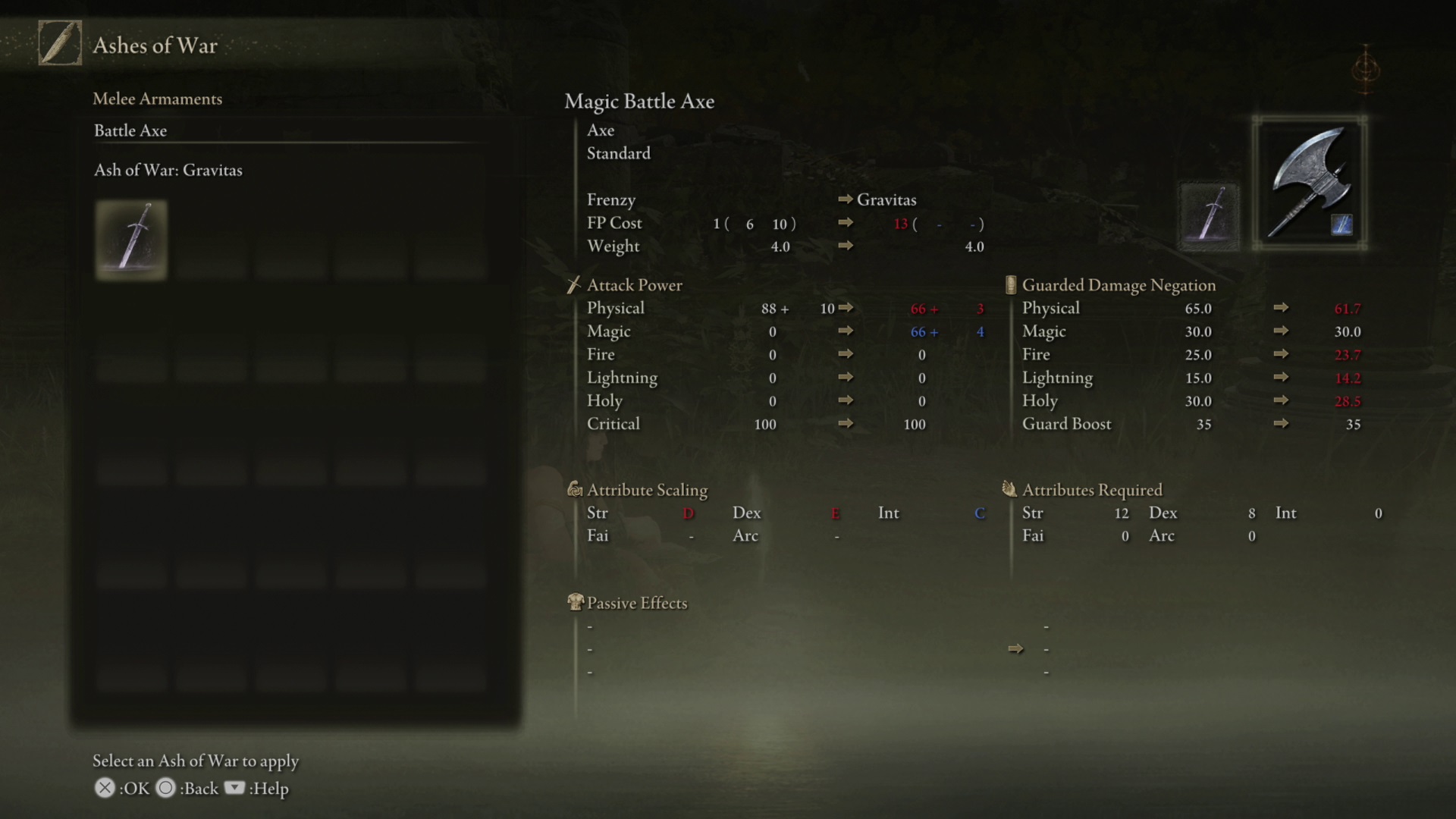
Upgrading weapons in the original Dark Souls required a whole mess of embers and multi-grade titanite, but Elden Ring seems to use a simple smithing stone currency for weapon upgrades. You can get any weapon to level three on your own as long as you have the smithing stones, but you'll need the help of a mysterious blacksmith to make weapons stronger again. The good news is that by collecting Ashes of War, you can change a weapon's properties yourself at any Site of Grace. Each Ash comes with its own scaling – adding Intelligence-scaling magic damage to a longsword, for instance – and a special skill activated by pressing the left trigger while two-handing that weapon, or while you have a catalyst or talisman equipped in your left hand. This makes it much easier to mess around with different damage types and skills since you don't have to dump a bunch of materials into upgrading different versions of the same weapon.
Fall damage is way more forgiving
Maybe it's just because everyone has at least a little Dexterity – which, again, reduces fall damage – but gravity doesn't hurt nearly as much in Elden Ring. Falls that would knock your kneecaps into your lungs in Dark Souls barely leave a mark in this game, which makes leaps of faith far less intimidating. Which is presumably the whole point – encouraging players to gamble on a descent in order to reach some tantalizing treasure or dungeon. You can absolutely die from fall damage, and so can your mount despite its double-jump, but you’re much less likely to here.
You can pass time whenever you want
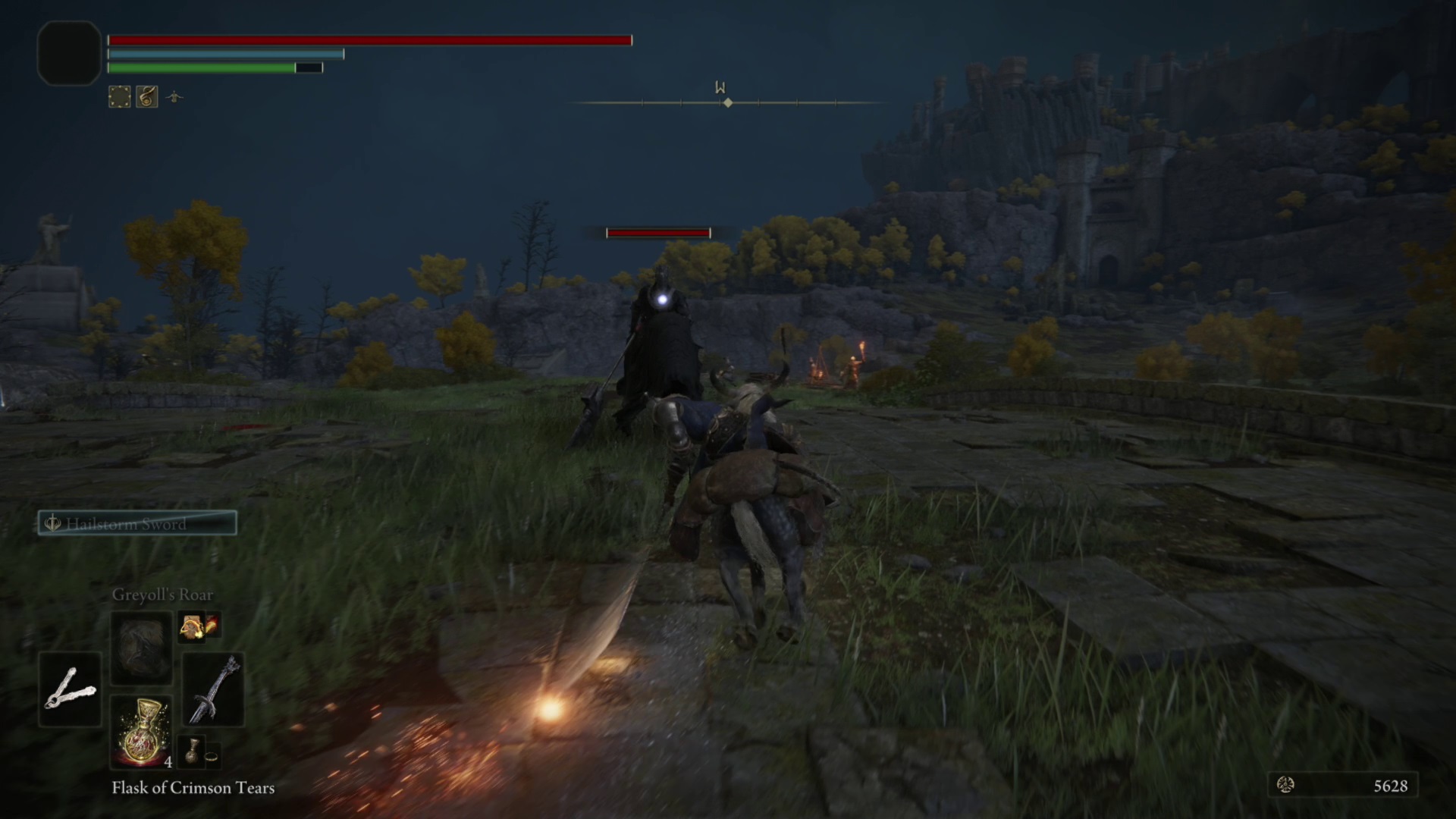
Sites of Grace can be used to speed up the in-game clock, which is useful because there are a few reasons you might want to approach certain areas at day or night. Visibility is a big one, and we've also encountered unique enemies that only appear at night. A bridge in Limgrave, for example, is haunted by a black horseman who apparently only shows up after nightfall.
Shields can guard counter and parry
This is quietly one of the biggest additions in Elden Ring. Some of FromSoftware's most recent games have removed or nerfed shields, but Elden Ring has returned them to their former glory and then some. The shields in this game can block with the best of 'em, and if you launch a heavy attack right after blocking an advance, you'll perform a hard-hitting guard counter that deals poise damage and can stagger enemies, opening them up to riposte-style critical attacks. Guard counters are extraordinarily helpful against enemies who fight quickly or at range, since they're much safer than parrying, and they can even help you keep up the offensive against bosses.
You have infinite stamina outside of combat
This is a quality of life change we've wanted for a while. As long as you aren't actively fighting or being targeted by something, you can sprint without consuming any stamina. Your spectral steed Torrent can run indefinitely, so this doesn't really apply to them, but it's really nice being able to run around without slowing down, or worse, being caught off-guard without enough stamina to block or dodge in an emergency.
Your HUD isn't visible all the time
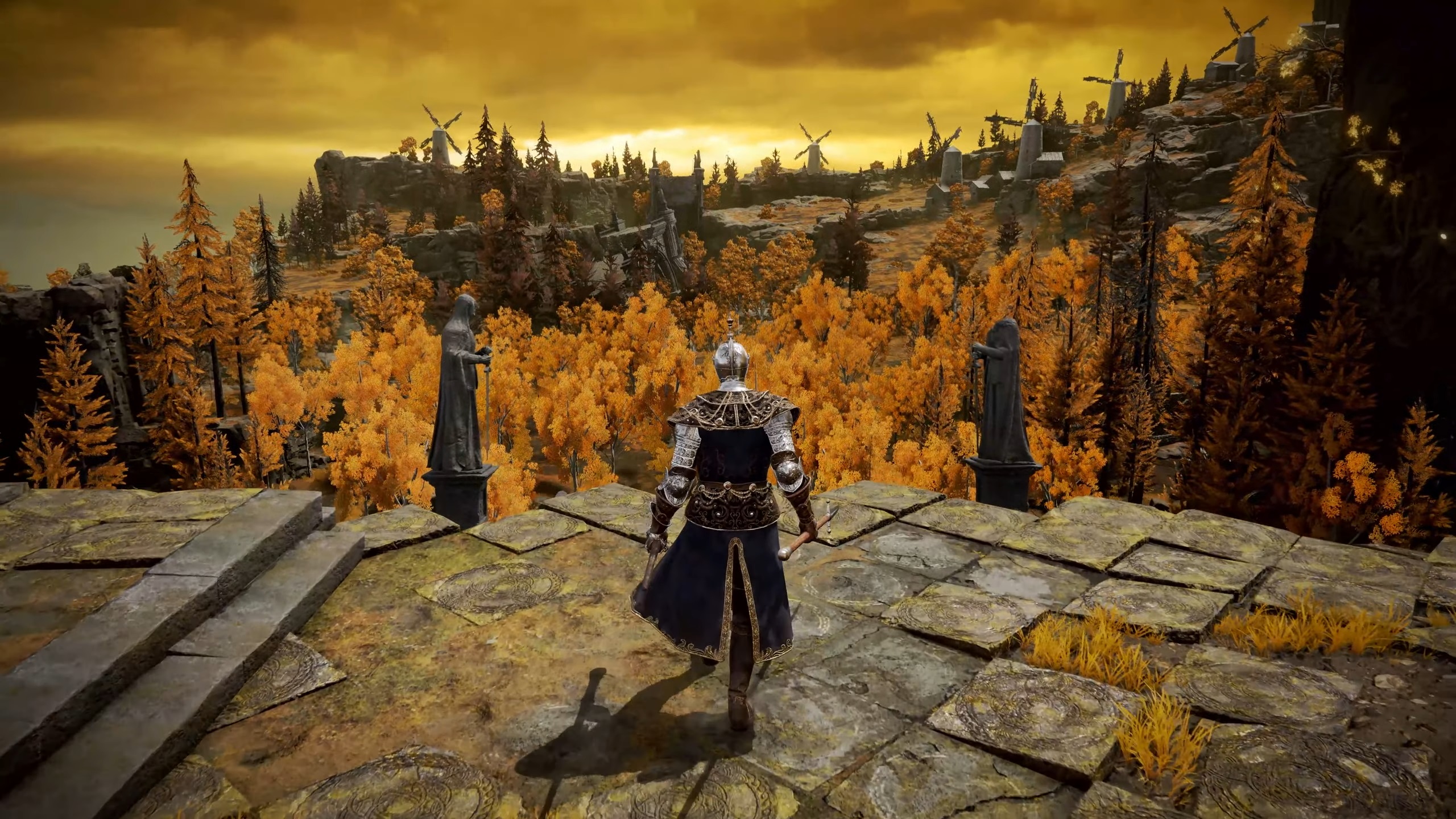
This is another out-of-combat option that we really appreciated. When you're not in danger, you can keep your HUD hidden to soak up as many sights as possible. The Lands Between is a gorgeous, if hazardous place, so we recommend keeping your HUD hidden whenever you can. It makes sightseeing more fun and you might even spot something that would otherwise be covered by your HP bar or some other overlay.

Austin has been a game journalist for 12 years, having freelanced for the likes of PC Gamer, Eurogamer, IGN, Sports Illustrated, and more while finishing his journalism degree. He's been with GamesRadar+ since 2019. They've yet to realize his position is a cover for his career-spanning Destiny column, and he's kept the ruse going with a lot of news and the occasional feature, all while playing as many roguelikes as possible.


